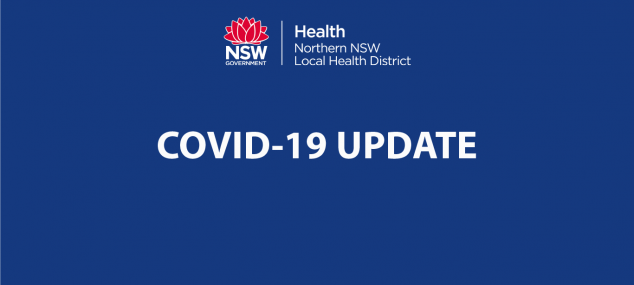
10 new cases of COVID-19 have been confirmed within the Northern NSW Local Health District (NNSWLHD) since our last update, bringing the District’s total to 17 cases.
The Public Health Unit is in the process of contacting close contacts, and investigations are underway to determine the sources of these cases.
The confirmed cases to date are spread across the length of the Local Health District, from Clarence right up to the Tweed Valley.
We’d like to thank those who have been cooperating with our Public Health Officers to date, working with our staff and self-isolating correctly at home.
We can’t emphasise enough how important it is for all our community to heed the advice of authorities in efforts to slow the transmission of the virus.
It’s critical to adhere to self-isolation guidelines if you’ve been instructed by health authorities or mandated to quarantine as a result of overseas travel.
For general members of the public, the most important things you can do at the moment are:
- practising good hygiene - hand washing or sanitising, and coughing/sneezing into a tissue which you then discard
- staying at home if you’re sick
- minimising close contact with others by following the social distancing measures.
It’s also important to remember that locations where cases live, work or have visited don’t pose an ongoing risk to members of the public. If you are considered a close contact of a confirmed case, a Health officer will contact you directly.
COVID-19/flu clinics
COVID-19/flu clinics are established at The Tweed Hospital, Lismore Base Hospital and Grafton Base Hospital, open from 10am to 6pm daily.
These clinics are for those most at risk with respiratory symptoms or fever, those returning from overseas or in contact with a COVID-19 case, or people like our health workers. It is vital that these respiratory clinics are not overwhelmed with people who are not in the high risk groups, which could result in delays identifying those most vulnerable. People without symptoms do not need to be tested.
The symptoms of COVID-19 include fever, cough, headache, runny nose, or shortness of breath. Anyone with symptoms should isolate themselves from others.
Identification and isolation of contacts is a critical measure that limits the spread of COVID-19. Compliance with self-isolation by all contacts and returned travellers is essential.
When social distancing actions are combined with good personal hygiene measures the spread of an epidemic through the community can be slowed.
This helps protect the most vulnerable members of the community. It also reduces the impact of the epidemic on essential, life-saving health services by reducing the size of the peak of the epidemic so health services can continue to provide high quality care to all patients.
Everybody must play their part.
For advice and information about COVID-19 visit www.health.nsw.gov.au/Infectious/diseases/Pages/coronavirus.aspx